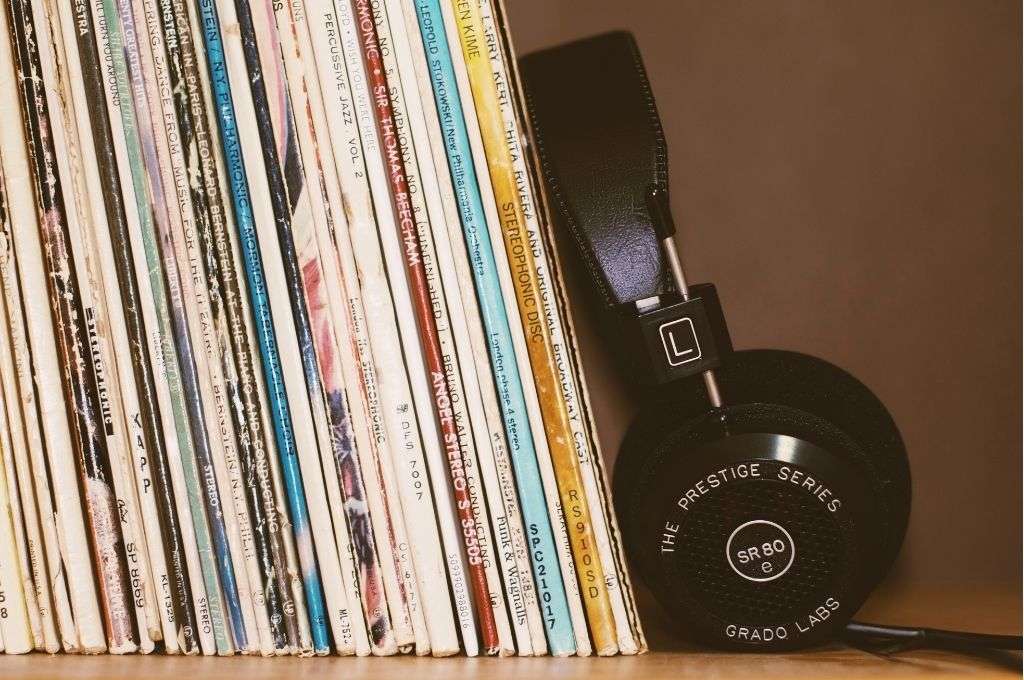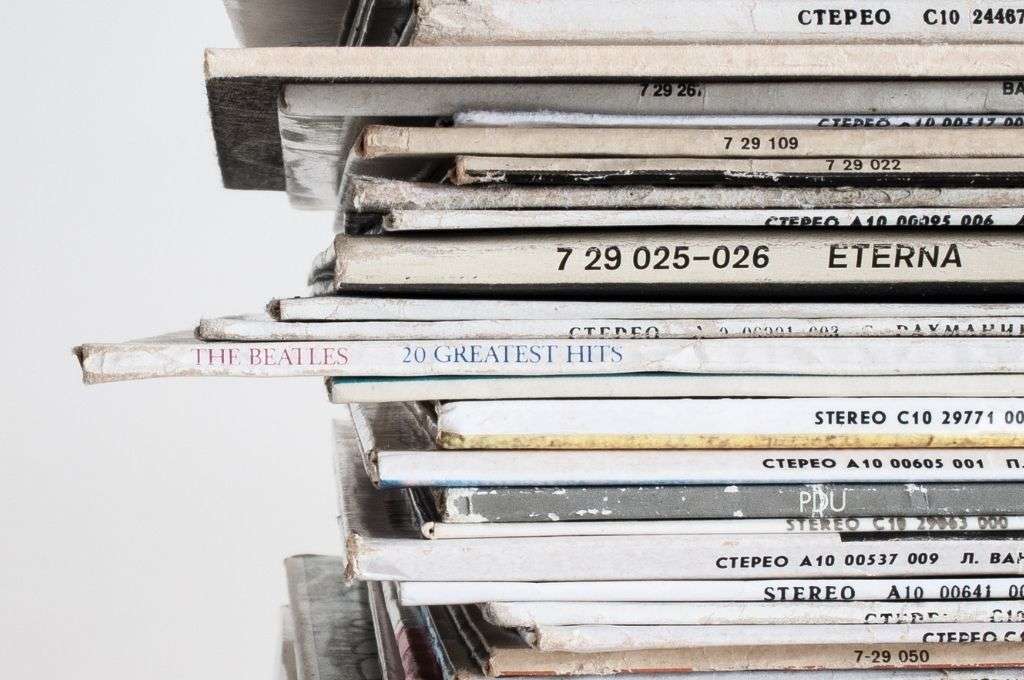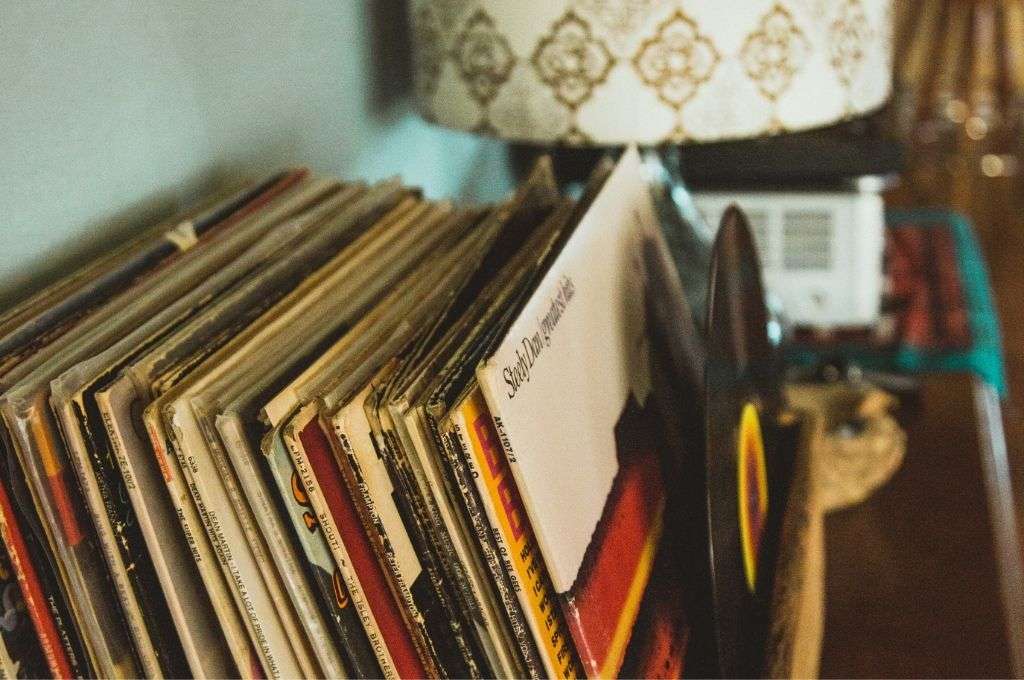Do you have a vinyl record collection that you want to protect? If so, you need to know how to store vinyl records properly. Vinyl records are not only valuable items but often sentimental. It’s important to keep vinyl records safe and undamaged so they can be enjoyed for years to come.
Below are some of the best ways to store your vinyl records and tips on caring for them and keeping them in good condition.
HiFi Hippo is a participant in the Amazon Services LLC Associates Program, an affiliate advertising program designed to provide a means for sites to earn advertising fees by advertising and linking to Amazon.com.
Tips for where you should store your records

Storing your vinyl records properly is key to keeping them in pristine condition and preventing warping. Here are a few tips on where to store your collection:
In a cool, dry place
One of the most important things you can do to keep your vinyl records in good condition is to store them in a cool, dry place. Humidity and extreme temperature fluctuations can damage and warp your records, so it’s essential to find a storage solution to protect them from these elements.
The best way to store a vinyl record is in a temperature and humidity-controlled environment. If it’s comfortable for you, it’s likely comfortable for your record collection.
Once you’ve found the perfect spot to store your records, you need to make sure they are properly protected. Vinyl records are delicate and can be easily damaged, so it’s essential to invest in some good storage solutions.
Away from direct sunlight
It’s essential to store your vinyl records away from direct sunlight. Extreme heat and light can damage the record’s surface and cause it to warp. If you must keep your records in a sunlit room, consider placing them in vinyl record storage cabinets.
Another reason to keep your vinyl records out of direct sunlight is that they can fade the labels over time. This is especially true for older records with paper labels. The sun’s ultraviolet light can discolor the label, making it difficult to read.
If you have no choice but to store your records in a sunny room, be sure each record is covered with its inner and outer sleeves. Storing records in their sleeves prevents the sun from shining on them and can help regulate the temperature among a handful of other benefits.
Out of the reach of children and pets
One of the most important things to consider when you store vinyl records is keeping them out of the reach of children and pets. This is because both can easily damage the delicate surface of a record.
If you have young children in the home, it may be best to keep your records stored in a cabinet or closet that they cannot access. Likewise, if you have pets, it is crucial to make sure they cannot get to your records as well.
On a shelf or in a cabinet
Storing your vinyl records on a shelf or in a cabinet is a great way to keep them organized and dust-free. If you have limited space, consider investing in vertical storage options like racks or shelves so your records are stored vertically. You can also use dividers to keep your collection sorted by genre, artist, or release date.
This is an excellent option if you want to see your entire collection at a glance and have easy access to all of your records. Just make sure that the shelves or cabinets you choose are sturdy enough to support the weight of your vinyl collection.
Storing your records on a shelf or in a cabinet will help protect them from dust and damage and can also help you stay organized. With a bit of planning, you can find the perfect storage solution for your vinyl collection.
Protected by a dust cover or sleeve
The next step is to protect your records from dust and other contaminants by storing them in their inner sleeves. You can purchase record sleeves made of paper or polypropylene if a record doesn’t have one already.
Moreover, ensure that the sleeve is slightly larger than the record itself so that it doesn’t put too much pressure on the record. You don’t want your records to warp over time! Once your records are safely tucked away in both their inner and outer sleeves, you can store them in several different ways.
Keeping them upright in a dedicated vinyl record storage unit is a great idea, but a bookcase is a good option if you’re looking for something on the fly.
Always store records in their album jackets
An album jacket, sometimes called an outer sleeve, protects a record from other environmental hazards that could damage it. If you don’t have the original jacket, you can purchase record covers made of thick paper or polyethylene.
To keep your collection organized, consider investing in a storage system specifically designed for vinyl records. These often come with dividers so you can alphabetize your records or group them by genre. Whichever method you choose, make sure to handle your records with care to prevent damage.
4 vinyl record storage mistakes to avoid

The vinyl revival is in full swing, and more and more people are dusting off their old record players and buying new ones. If you’re one of the many people who have caught the vinyl bug, you need to ensure you’re storing your records correctly. Here are 4 common mistakes people make when storing vinyl records:
1: Not using a record player cover
One of the most common mistakes is not using a cover for your record player. Dust and other particles can easily build up on your turntable, damaging your records. Use a dust cover and purchase a record cleaning brush to keep things clean. A record player cover is essential for protecting your turntable from dust and other particles. For further info, check out our turntable needle cleaning guide.
2: Storing records in the basement
The temperature in your basement or crawl space is usually stable, making it seem like an ideal place to store vinyl records. But beware of mold and mildew, which can damage both the jackets and the discs. If your basement is prone to flooding, consider storing your records on above-ground-level shelves.
3: Weak shelving
One of the most common mistakes people make is using weak shelving to store their vinyl. You need to make sure you’re using a sturdy shelf that won’t collapse under the weight of your collection.
This is especially important if you have an extensive collection. You don’t want your shelves to buckle under the weight and damage your records.
4: Not using sleeves
The biggest record storage sin is not using sleeves. Records should always be kept in both an inner sleeve and outer sleeve to protect them from dust, water, and other environmental factors. If you don’t have sleeves for your records, you can purchase them online or at your local record store.
What you should consider when storing vinyl records

Below are some key factors to consider when storing your vinyl collection:
Temperature and humidity levels
A record is sensitive to changes in temperature and high humidity and can warp or become brittle if exposed to extreme conditions. It’s essential to store records in a cool and relatively dry environment away from moisture and high heat.
Packing material
Use acid-free paper or cardboard to line the storage boxes and make sure the records are wrapped in at least an inner sleeve being placed inside. This will help protect them from scratches and damage.
Proper cleaning and care
The first step in preserving your vinyl records is to keep them clean. Dust and dirt can damage the record’s surface and cause it to skip. You can purchase a vinyl cleaning solution and an anti-static brush to gently remove dust from the surface of your records.
When cleaning your vinyl records, it’s essential to only used dedicated record cleaning solutions. You should also avoid getting the label wet, as this can cause the paper to peel off.
The location of long-term storage spaces
The location of your storage space can be very important when considering how to store vinyl records. If you live in a particularly humid or hot climate, it’s best to avoid storing your records in an attic or garage. These areas are prone to temperature fluctuations, which can damage your records.
If you have the space, it’s also a good idea to create a dedicated storage area for your vinyl collection. This will help protect your records from dust and other debris that can accumulate over time. When choosing furniture for your storage area, look for pieces with smooth surfaces that won’t damage your records.
Make sure you have enough space to store your records safely. They should be stored upright in sturdy boxes or shelves and shouldn’t be stacked on top of each other.
How often the records are played
Depending on how often you play your records, you might want to store them in a different way. If you’re a casual listener and only pull them out every few months, then you can probably get away with storing them less conveniently. However, if you’re a more avid listener and spin your records often, then you’ll want to take extra care when storing them.
In that case, you can invest in some kind of furniture specifically designed for vinyl storage. Not only will this help keep your collection organized, but it will also keep your records dust-free and protected from accidental damage.
In conclusion
Vinyl records are not a dying art form. More and more music fans are accumulating their collections at home, indicating that the industry will be around for a long time. If you’re one of those fans and don’t know how to store your vinyl records, this guide should help you get started.
There are many factors to consider when storing vinyl records, but the most important one is how often you plan on playing them. If you’re a casual listener, you can get away with storing your records in a less-than-ideal environment. But if you’re a diehard fan who plans on spinning their collection every week, it’s essential to take extra care of your records.
Either way, make sure your records are stored in a cool, dry place where they won’t be exposed to extreme temperatures or humidity. With proper care, your vinyl records will last for decades.

Lead Editor / Owner
After beginning his career in the video and audio recording industry, Andrew started HiFi Hippo to share his knowledge and passion for vinyl and vintage audio with other readers.
